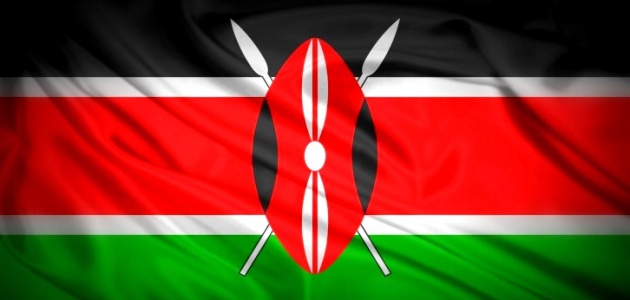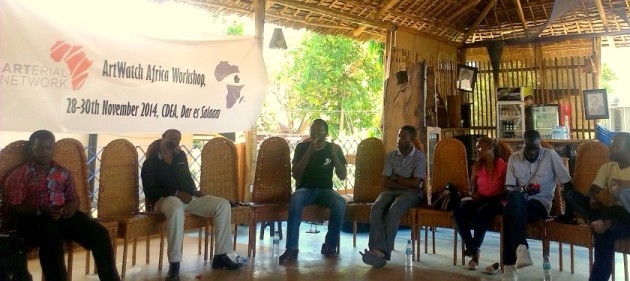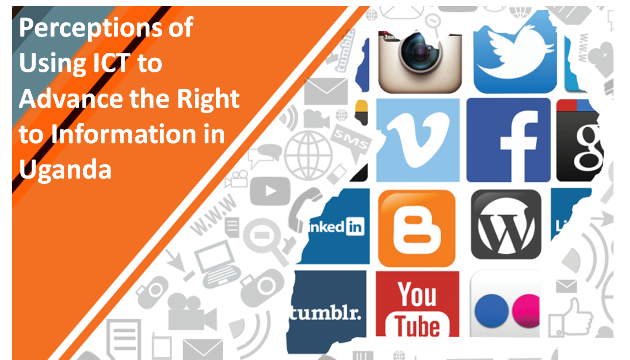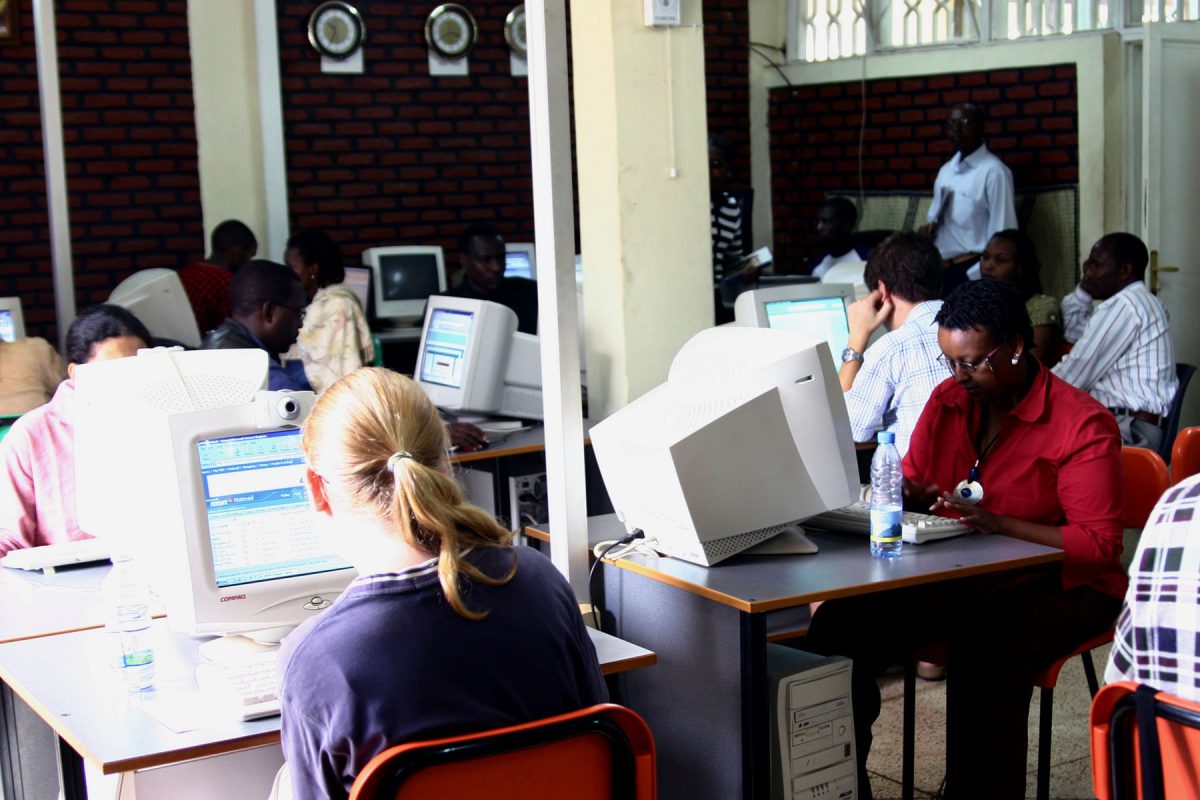By Juliet Nanfuka |
The rights of Kenya’s digital citizens are fast shrinking in the face of new restrictive laws and increased arraignment of individuals for expressing online opinions which authorities deem in breach of the law.
The Security Laws (Amendment) Act 2014, assented to by President Uhuru Kenyatta last December, allows blanket admissibility in court of electronic messages and digital material regardless of whether it is not in its original form.
It is feared that retrogressive provisions in this law could be used to put the chill on internet freedoms in East Africa’s most connected country where mobile phone penetration stands at 80% and internet access at 50% of the population.
Part V of the new security law regarding “special operations” has raised particular concerns, as it expands the surveillance capabilities of the Kenyan intelligence and law enforcement agencies without sufficient procedural safeguards.
It gives broad powers to the Director General of the National Intelligence Service to authorise any officer of the Service to monitor communications, “obtain any information, material, record, document or thing” and “to take all necessary action, within the law, to preserve national security.”
In addition, the amendments also contain unclear procedural safeguards especially in the interception of communications by “National Security Organs” for the purposes of detecting or disrupting acts of terrorism.
Even though there is a provision for a warrant to be issued by a court of law, the broad definition of ‘national security’ leaves no room for restrictions on the extent of power the law grants to National Intelligence Service when it comes to accessing personal data, information and communications.
In February 2015, the Kenya High Court struck some clauses from the security law. The government says it may appeal.
Government says the new law is necessary to fight al Shabaab militants who have repeatedly rocked the country with fatal attacks such as the Westgate shopping centre attack on September 21, 2013, which left 67 people dead. Human rights activists blame President Kenyatta’s government for steadily shrinking the space for civil actors, a pattern they say was manifested in the Kenya Information and Communications (Amendment) Act 2013 and the Media Council Act 2013. These laws, they say, placed restrictions on media freedom and general freedom of expression.
The proposed Cybercrime and Computer related Crimes Bill (2014) also falls short of constitutional guarantees as it is contains “broad” speech offences with potentially chilling effects on free speech. See a full legal analysis of the Bill by Article 19. Proposed regulations to the law governing non-government organisations, which cap the funds received from foreigners at 15% of their overall budgets, have also been criticised as aimed to curtail and control the activities of civic groups engaged in governance and human rights work.
Over the 2012-2013 election period, several individuals were charged in court over their online communications. The National Cohesion and Integration Act of 2008 has been used to charge many for promoting hate speech – which some Kenyan citizens found justifiable given the role that hate speech played in the 2007 to 2008 post-election violence.
Hate Speech is defined by the 2008 Act as speech that is “threatening, abusive or insulting or involves the use of threatening, abusive or insulting words” with the intention to stir up ethnic hatred or a likelihood that ethnic hatred will be stirred up. Authorities, however, seem to be shifting gear and using this charge among others against online journalists and bloggers that criticise the Kenyatta government.
In December 2014, blogger Robert Alai was arrested and charged with undermining the authority of a public officer contrary to Section 132 of the Penal Code by allegedly calling President Kenyatta an “adolescent president” in a blog. He was again arrested in February 2015 for offending a businessman online by linking him to a land saga that involved the illegal acquisition of the Langata Primary School playground.
Meanwhile, Allan Wadi – a student – was also arrested for “hate speech” and jailed in January 2015 for posting negative comments on Facebook about the president. In the same month, journalist Abraham Mutai was arrested following tweets he posted on corruption in the Isiolo County Government. He was charged with the “misuse of a licensed communication platform to cause anxiety.”
Nancy Mbindalah, an intern with the department of finance at the Embu County Government, was charged on similar grounds for social media posts dating as far back as 2013 in which she is alleged to have abused County Governor Martin Wambora.
at the Embu County Government, was charged on similar grounds for social media posts dating as far back as 2013 in which she is alleged to have abused County Governor Martin Wambora.
In all instances, some social media users claimed there were “selective” arrests and prosecution of those critical of government. Critics cited the case of Moses Kuria, a Member of Parliament (MP) for Gatundu South, who allegedly made remarks on Facebook against the Luo Community but did not face the same punitive actions.
A recent news report, however, indicates that the National Cohesion and Reconciliation Commission and the Public Prosecutor are calling for the MP’s case to be revisited for the “incitement to violence, hate speech and fanning ethnic hatred.”
The incidents of arrest, prosecution and law amendments demonstrate a recurring theme of clamping down on dissenting citizen voices, a concern that was highlighted by the Kenya Human Rights Commission and the International Federation for Human Rights following the enactment of the Security Laws (Amendment) Act.
While the country remains on a constant alert for terror attacks, this has been used to strengthen the control that the state has on freedom of expression and surveillance. The lack of laws that limit state access to citizens’ information further exacerbates this concern.
Women And Internet Freedom In East Africa
On March 8, International Women’s Day was marked across the world under the theme “Make It Happen.” The OpenNet Africa initiative, which monitors and promotes internet freedom in Africa, participated in a series of online discussions focused on women in the digital sphere.
A shared theme across all discussions to mark the day was the call for greater protections of women’s rights both online and offline. Many of the disadvantages faced by women offline have been transferred online, leaving many excluded from the information society, while those with access are sometimes targets of online hostility, such as gender based reputation and privacy attacks. In Africa, a key offline disproportionality is the education level and in turn ICT literacy variance between men and women.
ALL stakeholders, from govs to end-users, must actively participate in enhancing Internet governance for vulnerable groups #WomenOnlineEA
— NEPAD IG (@NEPAD_IG) March 9, 2015
Pan-African efforts such as the African Declaration on Internet Rights and Freedoms call for the creation and promotion of online content that “reflects women’s voices and needs, that promotes and supports women’s rights – in order to address existing gender inequalities and encourage active participation and empowerment of women via online spaces.” The Declaration recognises the need for mechanisms that enable the full, active and equal participation of women and girls in decision-making about how the Internet is shaped and governed.
In #Ethiopia women make a little over 50 % of the population but they have less access to Internet #womenonlineea @OpenNetAfrica @EHAHRDP — endalk2006 (@endalk2006) March 9, 2015
@EHAHRDP @jamiiforums @nkurunzizajp Are there govt led initiatives to increase access for women online in your countries? #womenonlineEA
— OpenNetAfrica (@OpenNetAfrica) March 9, 2015
@JamiiForums @endalk2006 @nkurunzizajp Is there legislation that protects women online? #cyberviolence #womenonlineEA #internetfreedom
— OpenNetAfrica (@OpenNetAfrica) March 9, 2015
@OpenNetAfrica @EHAHRDP @jamiiforums @nkurunzizajp There is no one that I know in #Ethiopia.#womenonlineEA — endalk2006 (@endalk2006) March 9, 2015
@OpenNetAfrica in #Tanzania, the April Parliamentary Session is expected to have a bill that ‘might’ do! @endalk2006 #WomenOnlineEA — Jamii Forums (@JamiiForums) March 9, 2015
On March 7, the Unwanted Witness and the Women of Uganda Network (WOUGNET) held a twitterthon using the hashtag #WomenOnlineEA to highlight and create awareness on the important role women have played in the development of Uganda through ICT.
Using the hashtag #ICT4Women and reflections from a report titled Cyber Infrastructure: A Women’s Issue Too!, the discussions focused on the impact digital communications have had on women globally and in Uganda. According to the report, as ICT access and use increases in Uganda, a balanced ICT policy that includes women as key stakeholders should be pursued.
The sentiments of the twitterthon were echoed during a post-International Women’s Day twitter chat held amongst OpenNet Africa partners including Jamii Forums (Tanzania), East & Horn of Africa Human Rights Defenders Project (EHAHRDP) and experts from Ethiopia and Burundi on March 9. This chat used the hashtag #WomenOnlineEA and also touched on issues discussed during Safer Internet Day which explored Promoting Online Safety in Africa on February 10.
Participants in this chat concluded that efforts to increase internet access for women should be complemented with the fundamental rights to privacy, access to information and data protection as some of the key requirements of internet freedom. Increased mobile phone access in particular was pointed out as a key driver for inclusivity and participation online for women.
According to the 2014 State of Internet Freedom in East Africa report, increased mobile penetration has contributed towards more internet users. Conversely, women on average are 14% less likely to own a mobile phone than men, according to a recent GSMA report which also indicates that despite women seeing value in mobile phones as life enhancing tools, there are 200 million fewer women than men owning mobile phones globally.
According to the ITU, there are fewer women in developing countries online than there are men. In 2013, this figure stood at 16% fewer women than men accessing the internet in developing countries. Indeed, some twitter chat participants pointed out that internet access was not a key priority for women in developing countries. Rather, focus should be given to access to clean water, electricity and sanitation needs, among others. This was, however, countered with the argument that access to the internet is no less a priority for women than access to other basic needs.
#Internet is a utility like clean water & electricity says @endalk2006 #internetfreedom @EHAHRDP @OpenNetAfrica #womenonlineEA
— OpenNetAfrica (@OpenNetAfrica) March 9, 2015
@OpenNetAfrica @JamiiForums @nkurunzizajp We envision more women empowered to use the internet for #Social #Economic change #WomenOnlineEA
— Defend Defenders (@EHAHRDP) March 9, 2015
Gender divide is yet to b addressed nation-wide but is sparkling interest among a few for institutional gains #WomenOnlineEA @OpenNetAfrica
— Jamii Forums (@JamiiForums) March 9, 2015
Throughout the discussions, participants shared reports and insights on internet freedom from their respective countries in what is an increasingly transforming area in the region. See A brief look into Internet Freedom and women in East Africa for a summary of the twitterthon.
Promoting Cultural and Artistic Expression in Africa
By Ashnah Kalemera
As humans, individual artists enjoy rights enshrined in national laws and international instruments on freedom of expression, assembly and association. However, there are variations between countries on what the laws provide for and the level of freedoms of creative, artistic and cultural expression that citizens enjoy.
In Africa, various factors impact upon these freedoms – including political, religious, social-economic and cultural issues. According to the ArtWatch Africa 2013 report on Monitoring Freedom of Creative Expression, national constitutions, laws, regional and international conventions of which African countries are signatories support cultural rights. However, while some national constitutions expressly protect arts and creativity, others only “implicitly” refer to the sector through guaranteeing the rights to freedom of expression or cultural life.
The report indicates that only a few African countries have ratified international conventions on cultural and artistic expression, and even less have national cultural policies. The situation is further compounded by little or no state and civil society mechanisms to monitor adherence to countries’ commitments to upholding cultural and artistic rights.
Table 1: Status of the Legal Framework of Cultural and Artists Rights in Select East African Countries
| Country | Status of International, National and Regional Instruments related to Cultural and Artists Rights | |||||
| National Cultural Policy | University Declaration of Human Rights | UNESCO Convention on the Protection and Promotion of the Diversity of Cultural Expression | International Covenant on Civil and Political Rights | International Covenant on Economic, Social, Cultural and Political Rights | The African Charter on Human and People’s Rights | |
| Burundi | None | Recognises the Declaration as state party to the United Nations | Ratified 2008 | Ratified 1990 | Ratified 1990 | Ratified 1989 |
| Ethiopia | Cultural Policy 1997 | Ratified 2008 | Ratified 1993 | Ratified 1993 | Ratified 1998 | |
| Kenya | Culture and Heritage Policy 2009 | Ratified 2007 | Ratified 1972 | Ratified 1972 | Ratified 1992 | |
| Rwanda | Draft Cultural Policy in 2010 | Ratified 2012 | Ratified 1975 | Ratified 1975 | Ratified 1981 | |
| Uganda | Culture Policy 2006 | Not party | Ratified 1995 | Ratified 1987 | Ratified 1986 | |
Accordingly, ArtWatch Africa is working to advance freedom of creative and cultural expression in Africa. In November 2014, ArtWatch Africa in collaboration with Culture and Development East Africa (CDEA), organised a workshop to deepen key Tanzanian stakeholders’ understanding of cultural and artistic rights and to explore approaches in addressing the challenges faced in the national cultural sector. The three-day event was part of a series of workshops organised by ArtWatch Africa’s project that monitors the challenges and constraints on freedom of creative expression in Africa towards developing democracy and human rights on the continent.
Participants at the Tanzania workshop identified a number of challenges faced by local artists, including limited networks and alliances that advocate for artists’ rights. The few existing artists associations had prohibitive member subscription fees. Meanwhile, low media coverage and interest in arts and culture affected information availability in the public domain and advocacy campaigns.
Information and Communication Technologies (ICT) offer a potential to promote cultural and artistic expression but can also act as platforms for negating these rights. For instance, tools such as social media can be utilised to advance freedom of expression, build networks of like-minded organisations and enable individuals to share, seek and impart relevant information. On the other hand, the tools can be used to control arts and culture through classification restrictions on publishing and dissemination of content on grounds of age, blasphemy and censorship, among others.
During 2015, the OpenNet Africa project will be seeking to work with visual and performing artists to understand and promote freedom of expression, notably on the internet through their work and networks in Africa – both as targets for education campaigns and as agents of activism. This is in line with the project’s objectives of promoting access to information, privacy, safety and security online. OpenNet Africa is an initiative of the Collaboration on International ICT Policy for East and Southern Africa (CIPESA) in partnership with the Humanist Institute for Cooperation with Developing Countries (Hivos) and the Open Technology Fund.
Using ICT to Promote the Right to Information: Perceptions of Ugandan Citizens and Public Officials
By Juliet Nanfuka |
Towards the end of 2014, the Collaboration on International ICT Policy for East and Southern Africa (CIPESA) conducted research into how public officials and citizens perceived the potential of Information and Communication Technology (ICT) to advance the right to information in Uganda.
The studies revealed that there is a keen interest by citizens and public officials to leverage digital tools for increased transparency, civic awareness and participation in democratic processes. However, a larger proportion of citizens was using ICT relative to the public officials to improve access to information.
One study involved the administration of a questionnaire to 62 public officers from more than 30 Ministries, Departments and Agencies (MDAs). A second study targeting citizens involved the administration of a separate questionnaire amongst 235 respondents drawn from 10 districts, mainly university students, journalists, and staff of civil society organisations.
Uganda enacted the Access to Information Act (ATIA) in 2005, becoming one of the first African countries to have such a law. The Act, however, remained unimplemented until 2011 when the enabling regulations were enacted.
Although the Access to Information Act has been in existence for the last nine years, only 18% of the public officials and 10% of citizens rated themselves as extremely knowledgeable about the law. While all public officials had some level of knowledge of the law, 9% of citizens indicated no knowledge at all of the law.
Whereas citizens indicated histories of having made information requests, only 39% of public officials indicated that they had ever received an information request made formally using the 2005 ATIA. Notably, 87% of the information requests were made informally without mention of the ATIA or completing the required request forms.
The research reveals that although ICT tools such as emails and telephone calls are being used to request for information, requested information remains in silos as it is given directly to the requester with no guarantee that it will be disseminated further.
Challenges noted by public officials for the low levels of information release included limited ICT skills, the Official Secrets Act (1964) which hampers release of information to the public, and limited resources to adequately implement the Act on a more regular basis.
Meanwhile, following the launch of the Ask Your Government (www.askyourgov.ug) initiative in August 2014, the research aimed to gauge respondents’ knowledge and use of the portal. The portal was launched by government in partnership with civil society to enable Ugandan citizens to make public information requests from MDAs.
In the research, 75% of public officials strongly agreed that the use of ICT would make it easier and simpler to respond to information requests. This was supported by 79% of the citizen respondents who believed that the use of ICT to make information requests was likely to enable public bodies become more responsive than use of manual, non-ICT means. This would alleviate the “long process” and “cumbersome bureaucracy” which citizens pointed out as key reasons for not using the law to request for information.
For journalists who participated in the research, the 21 days which the law gives public officials to respond to information requests was cited as a key challenge given the tight deadlines in media work.
See: Advancing the Right to Information Amongst Ugandan Journalists
However, both citizens and officials indicated some skepticism about the effective use of ICT to adequately support the right to information. Public officials pointed out technical challenges such as low bandwidth, outdated equipment and limited skills within the MDAs.
One official noted, “Although employed by government, many officials have no access to ICT and some lack knowledge of how to use the tools.” Safety and security concerns were raised with regard to citizens’ personal information.
Key report Findings:
- 33% of the interviewed citizens had ever made an information request using the ATIA law. However, only 28% of these requests received positive outcomes.
- SMS was ranked the ICT tool that citizens were most proficient in using, at 58%, followed by social media at 44%. However, respondents used Facebook more frequently than SMS.
- Public officials ranked their proficiency highest in using SMS (63%) and email (60%), and they used email most frequently, followed by SMS. Social media use ranked low amongst public officials.
The research recommends that civil society should engage more proactively in advocacy for the right to information amongst citizens. Meanwhile, public officials should encourage citizens to make information requests. It also recommends that public officials adopt a combination of both ICT and non-ICT based channels to ensure that information requests by citizens are attended to promptly as a means of ensuring citizens’ motivation to increase their demand for information.
Public officials recognised that improvements can be made to better put more information in the public domain. They recommended the provision of more authority to information and communication officers to disclose information; increased use by MDAs of interactive websites and social media as these are channels that their audiences are using; and a repeal of the Official Secrets Act (1964).
See the full research reports below:
Ugandan Public Officials’ Perceptions of using ICT to Advance Right to Information
Citizen’s Perceptions of Using ICT to Make Right to Information Requests in Uganda
Here's What CIPESA is Up To in 2015
ICT4Democracy in East Africa Network: With funding from the Swedish International Development Cooperation Agency (Sida), CIPESA is coordinating this project, which includes sub-granting to the following partners: the Commission for Human Rights and Good Governance (Tanzania), iHub Research (Kenya), the Kenya Human Rights Commission, Women of Uganda Network, Toro Development Network, and Transparency International Uganda. The Network uses ICT to promote citizen participation in democratic processes, human rights monitoring and social accountability.
OpenNet Africa: This project continues from 2012 and has support from the Humanist Institute for Cooperation with Developing Countries (Hivos) and the Open Technology Fund. Activities include an examination of the threats to access, privacy and security online in Burundi, Ethiopia, Kenya, Rwanda, Tanzania, and Uganda. We are documenting internet rights violations on an ongoing basis and maintaining the www.opennetafrica.org portal as the one-stop resource on internet freedoms in Africa. We are training human rights defenders, journalists, bloggers, artists and minority groups on internet freedoms, privacy and security online; as well as testing and promoting the use of tools that enable anonymising users’ identities, secure communications and the circumvention of online censorship.
Leveraging Open Data and the Right to Information to Promote Service Delivery: The purpose of the project is to empower citizens in East Africa to use Right to Information (RTI) laws and constitutional guarantees in combination with ICT to lodge information requests from public bodies. The project also involves awareness-raising and network building activities to promote RTI in Kenya, Uganda and Tanzania. The work is supported by the Open Society Foundations.
iParticipate Uganda: This project has been ongoing since 2011 and is currently supported by Sida. Activities include training of media and civil society in the use of ICT to promote citizen participation in democratic processes; research and promoting awareness on the utility of ICT for promoting citizen participation in democratic and public accountability processes. The activities also include provision of support to grassroots public ICT access centres; and engaging policy makers and other influencers on enabling ICT related policies to support democratisation and free expression.
Local Actions to Secure Internet Rights: This project specifically focuses on promoting individual’ privacy and personal data online. Using the current drafting process of the Uganda Data Protection and Privacy Bill 2014, we are building advocacy work towards the adoption of a progressive legislation that protects individuals’ data and privacy in the digital era. The country has a number of laws that undermine the rights to freedom of expression, data protection, privacy and access to information. These include: the Anti-Pornography Act 2014, The Regulations on Interceptions on Communications 2010, Anti-Terrorism Act 2002, Official Secrets Act 1964, and the Computer Misuse Act 2011. The Ford Foundation is supporting this work through the Association for Progressive Communications (APC).





